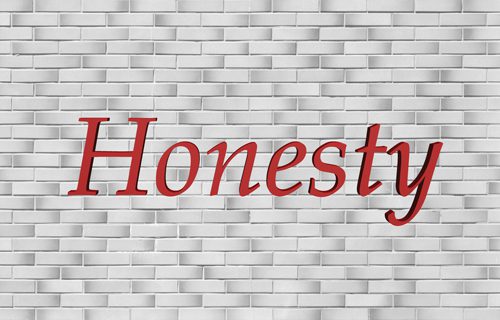
The Importance of Honesty in Recovery
As human beings, we are created with the capacity to be either honest or deceitful. Honesty is particularly important in addiction recovery.
For most adults, the choice between honesty and deceit is fairly clear. “Little white lies” or lying by omission may, depending on the specific circumstances, be acceptable to some people. For the average person, a little white lie here or there or leaving out a piece of the story might not be a big deal. Not so with someone in addiction recovery. Lying, truth-bending, story-enhancing, partial truths, and the many forms of manipulation are various tools of the trade for people suffering from addiction.
When a person enters into recovery and commits to making an entire change, an absolute shift in thinking must occur.
Lying, manipulating, and using people has become so habitual in addiction that it takes significant effort to retrain the behavior and thoughts when in recovery. Many rehabilitation centers and programs provide classes that help individuals recognize and reform their impulse to lie.
Cognitive Behavioral Therapy is one of the modalities therapists and treatment programs have been using for years. The Twelve Step program of Alcoholics Anonymous, and the many groups who have adopted the 12 steps, call for “rigorous honesty.” This means paying attention to every thought and action and changing the way you interact with others. It means that you are honest when it isn’t easy, or even when a small lie seems to make more sense. Often used in recovery programs are the principles of the four agreements. These first of these four agreements is to be impeccable with your word, which means to always speak with integrity, say only what you mean, and use the power of your word in the direction of truth and love.
The importance of honesty in recovery cannot be stressed enough.
People in addiction recovery don’t have the luxury to be even a little dishonest. It’s far too easy to fall back into a pattern of deceit, which makes it far too easy to relapse. When we stop being honest with ourselves and those around us, our sobriety is in jeopardy. Our brains try to convince us that we are not addicted and can therefore behave like other people. When an addicted person stops being honest, their disease can take hold more easily.
Changing to a focus on the truth can also help a person regain self worth. When we begin to build up personal integrity, we see another example of the importance of honesty in recovery. Recovery is not only about not using or drinking. It’s about building a life of purpose, freedom, and joy.
If you or someone you love needs help overcoming addiction, please contact us anytime at (337) 379.7700.